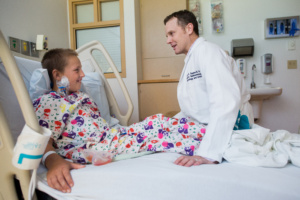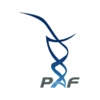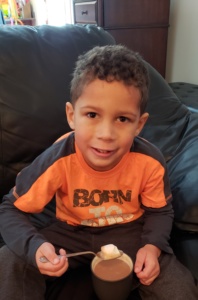Liver Transplantation for Propionic Acidemia:
部分 1 - 家庭可能有问题的答案,,en,詹姆斯Squires,,en,Squires是UPMC匹兹堡儿童医院的肝病专家,也是匹兹堡大学医学院儿科助理教授,,en,乔迪M,,en,风,,it,MGC,,tl,LCGC,,en,Jodie Vento是UPMC匹兹堡儿童医院遗传咨询师和罕见疾病治疗中心的经理,,en,我们可以期望肝脏移植可以为我们的孩子做什么,,en,根据迄今在丙酸血症儿童中进行肝移植的经验,,en,我们可以说肝移植后,,en,儿童的生活质量可能会大大提高,代谢危机也会大幅度减少,,en,家属理解这一点很重要,,en,肝移植是,,en,不,,en
James Squires, MD, MS

博士. James Squires
博士. Squires is a liver disease specialist at Children’s Hospital of Pittsburgh of UPMC and an assistant professor of pediatrics at the University of Pittsburgh School of Medicine.
Jodie M. Vento, MGC, LCGC
Jodie Vento is a genetic counselor and manager of the Center for Rare Disease Therapy at the Children’s Hospital of Pittsburgh of UPMC.
What can we expect that a liver transplant could do for our child?
Based on experience to date with liver transplants in children with Propionic Acidemia (PA),we can say that after a liver transplant,children are likely to have a substantially better quality of life and a dramatic reduction in metabolic crises. It’s important for families to understand, 但, that liver transplantation is not 治疗PA,,en,这是因为导致PA的酶缺陷存在于全身,,en,不只是在肝脏,,en,肝脏移植是我们肝脏专家称之为的,,en,大量酶替换,,en,提供足够的功能性酶以最小化 - 即使不能消除 - 代谢危机,,en,这是受影响儿童PA最严重的并发症,也是家庭疾病最可怕的特征之一,,en,因为移植后仍然可能发生与PA有关的并发症,,en,您的孩子将需要继续接受一名或多名医学专家的后续护理,,en,是否有PA的小孩进行肝脏移植的最低或“最佳”年龄,,en,没有最低或“最好”的年龄,,en,在我们的中心,,en. This is because the enzyme deficiency that causes PA exists throughout the body, not just in the liver.
The liver transplant serves as what we liver specialists call a bulk enzyme replacement, providing enough functional enzyme to minimize – if not eliminate –metabolic crises, which are the most severe complications of PA for affected children as well as one of the most frightening features of the disease for families.
Because complications related to PA may still occur following a transplant, there will be a continued need for your child to get follow-up care with one or more medical specialists.
Is there a minimum or “best” age for a child with PA to have a liver transplant?
There is no minimum or “best” age. At our center, PA患儿的肝移植平均年龄约为7岁,,en,但是我们已经对年仅一岁的儿童进行了移植手术,,en,考虑肝移植的最佳时机是,而PA的症状仍然得到合理控制,,en,也没有进行移植前评估或被列入移植等待名单的最低年龄,,en,在决定将孩子送往哪里接受肝移植评估时,我们应该考虑什么?,,en,最重要的考虑因素是手术团队在PA和其他代谢疾病患者中进行肝移植的经历,,en,这些患者的复杂需求与接受其他病情的肝移植患者的需求不同,,en, but we have performed transplants in children as young as one year old.
The best time to consider a liver transplant is while the symptoms of PA are still reasonably well controlled. There is also no minimum age for undergoing a pre-transplant evaluation or being placed on the transplant waiting list.
What should we consider when deciding where to take our child for a liver transplant evaluation?
The most important factor to consider is the experience of the surgical team performing liver transplants in patients with PA and other metabolic diseases. These patients have complex needs that are different from those of patients receiving liver transplants for other conditions.
UPMC匹兹堡儿童医院的儿科肝移植计划于 1981 by world-renowned transplant surgeon Thomas E. Starzl, MD, 博士. Our t Director of Pediatric Transplantation, George Mazariegos, MD, FACS, pioneered liver transplantation for children with metabolic diseases in 2004. Since that time, Children’s Hospital has performed more than 330 liver transplants for children with metabolic disease,more than any other transplant center.
We’ve also performed more liver transplants in children than any other center in the United States and more living-donor transplants than any other pediatric center in the country. Our one-year survival rate for pediatric liver transplant patients is 98%, exceeding the national average of 95%, according to the Scientific Registry of Transplant Recipients, Jan. 2018 release.
除了我们的世界知名和经验丰富的肝移植外科医生,,en,我们的罕见疾病治疗中心包括诊断和治疗PA和其他代谢疾病的国际专家,,en,我们如何开始让我们的孩子进行肝脏移植评估的过程,,en,我可以告诉你这个过程如何在UPMC匹兹堡儿童医院工作,,en,它从你的医生或医院的转诊开始,要求我们评估你的孩子,,en,我们还直接从感兴趣的家庭收到自荐,,en,我们会问医生或医院,,en,或两者,,en,向我们发送您孩子的所有病历,,en,我们会仔细查看记录,以帮助我们了解您孩子的病史和现状,,en, our Center for Rare Disease Therapy includes international experts in the diagnosis and treatment of PA and other metabolic diseases.
How would we start the process of having our child evaluated for a liver transplant?
I can tell you how the process works here at Children’s Hospital of Pittsburgh of UPMC. It starts with a referral from your doctor or hospital requesting that we evaluate your child. We also receive self-referrals directly from interested families. We will ask the doctor or hospital, or both, to send us all of your child’s medical records.
We will look at the records carefully to help us understand your child’s medical history and current situation. 这些信息有助于我们的多学科团队为您的孩子的评估访问制定个性化计划,,en,如果您的孩子最近进行了某些实验室或成像测试,,en,除非有合理的医疗原因,否则我们不会重复这些测试,,en,了解疾病如何影响您的孩子有助于我们确定您的孩子在评估过程中应该看到哪些专家,,en,家属知道进行移植前评估对任何一方都没有承诺是很重要的,,en,它不能保证你的孩子将被列入移植或治疗,,en,反过来,,en,您必须同意让您的孩子进入移植等待名单的任何要求,,en,我们可以回答问题,,en,提供资料,,en,并提出建议,,en,最终,,,en. 例如, if your child has recently had certain laboratory or imaging tests done, we won’t repeat those tests unless there’s a valid medical reason for doing so. Understanding how the disease is affecting your child helps us identify which specialists your child should see during the evaluation.
It’s important for families to know that undergoing a pre-transplant evaluation involves no commitment on either side. It carries no guarantee that your child will be listed for a transplant or, conversely, any requirement that you must agree to have your child placed on the transplant waiting list. We can answer questions, provide information, and make recommendations. Ultimately, 但, 决定继续移植,,en,或不,,en,对每个家庭来说都是私人的,,en,评估是家庭和医疗保健团队见面和相互了解的机会,,en,以及家人收集信息并获得有关任何和所有问题的答案,,en,我们希望您能够提出任何问题,感觉很舒服,,en,请不要犹豫,向我们询问你脑海中的任何问题,,en,没有愚蠢或愚蠢的问题,,en,如果你回家后想到你希望问的东西,,en,请给我们打电话,,en,你可以期望评估将是两个,,en,或三天的活动,,en,我们的罕见疾病治疗中心的工作人员将与您一起为您安排,,en,你的孩子,,en, or not, is a personal one for each family to make.
The evaluation is an opportunity for the family and the health care team to meet and get to know each other, as well as for the family to gather information and get answers to any and all questions you may have. We hope you’ll feel comfortable raising any concerns. Please don’t hesitate to ask us about any issue that’s on your mind. There are no dumb or silly questions. And, of course, if after you’ve gone home you think of something that you wish you had asked, please give us a call.
You can expect that the evaluation will be a two- or three-day event. The staff of our Center for Rare Disease Therapy will work with you to arrange for you, your child, 和其他家属留在医院附近,,en,无论是在我们的罗纳德麦当劳屋还是在附近的酒店,,en,而你来这里评估,,en,我们会在您访问之前给您发送时间表,,en,这将告诉你在什么时候你会看到哪些医学和外科专家,以及在评估过程中我们希望你的孩子有哪些实验室或成像测试,,en,对其他可能,,en,我们试着预测所有我们需要的测试,这样在您来到这里时,这是一个相对平稳的过程,,en,请告诉我们更多关于我们在孩子评估期间可以期待什么,,en,因为PA是一种遗传疾病,,en,你会看到的专家可能包括一名医学遗传学家和一名代谢营养师,,en, either at our Ronald McDonald house or at a nearby hotel, while you’re here for the evaluation.
We’ll send you a schedule in advance of your visit. This will tell you which medical and surgical specialists you’ll be seeing at what times and what laboratory or imaging tests we would like your child to have during the evaluation. To the extent possible, we try to anticipate all the testing we’ll need so that it’s a relatively smooth process while you’re here.
Please tell us more about what we can expect during our child’s evaluation.
Because PA is a genetic disease, the specialists you’ll see will likely include a medical geneticist and a metabolic dietician. 也, 因为PA经常导致心脏问题,,en,你的孩子的评估可能包括基本的心脏功能测试和心脏病专家的评估,,en,取决于疾病如何影响你的孩子,,en,评估还可能包括与以下专家一起访问,,en,神经科医生,,en,评估大脑功能,,en,胃肠病专家,,en,评估胰腺功能,,en,血液学家,,en,评估骨髓功能,,en,尽管我们试图预测所有我们需要的测试并预先安排,,en,有时我们可能会决定做一个最初不在计划中的附加测试会有帮助,,en,取决于基本心脏功能测试的结果,,en, your child’s evaluation is likely to include basic heart function tests and an assessment by a cardiologist. Depending on how the disease is affecting your child, the evaluation may also include visits with specialists such as the following:
- A neurologist, to assess brain function
- A gastroenterologist, to assess pancreas function
- A hematologist, to assess bone marrow function
Although we try to anticipate all the testing we’ll need and schedule it in advance, sometimes we may decide that it would be helpful to do an additional test that wasn’t originally on the schedule. 例如, depending on the results of the basic heart function tests, 心脏病专家可能想要做一个“压力测试”,这将提供更详细的信息和测量,涉及你的孩子的心脏功能如何,,en,如果我们决定继续将我们的孩子列入移植名单,,en,我们有什么选择获得捐赠肝脏,,en,我们可以期待它能找到一个兼容的捐助者多久,,en,PA被认为是肝移植的高优先级条件,,en,所以你的孩子的名字将靠近等候名单的顶部,,en,因为对捐赠者肝脏的需求很高而且供应有限,,en,我告诉家人准备好等待几个月,,en,随着任何肝脏移植,,en,另一种类型的肝脏移植涉及活人 - 如亲属,,en,朋友,,en.
If we decide to go ahead with listing our child for a transplant, what are our options for obtaining a donor liver? How long can we expect it to take to find a compatible donor?
PA is considered a high-priority condition for liver transplantation, so your child’s name will be near the top of the waiting list. 但, because demand for donor livers is high and supply is limited, I tell families to be prepared to be on the waiting list for several months.
With any liver transplant, 需要进行仔细的测试以确保供体肝脏和移植受者的相容性。许多因素都会影响兼容器官的等待时间. 例如, a child with an uncommon blood type may face a longer wait.
In general, child-size donor livers are scarce. A unique feature of the liver, 但, is that it is the only organ in the human body that can regrow. This means that in some cases it’s possible to transplant a section of a healthy liver rather than the whole organ. 例如, a child who needs a liver transplant may receive a section of a liver from an adult donor. You may hear this type of transplant referred to as a “reduced-size” or “split” liver transplant.
Another type of liver transplant involves a living person – such as a relative, friend, 甚至是一个陌生人 - 将一部分肝脏捐献给需要移植的人,,en,活体供体移植可能是一些PA患儿的选择,,en,因为PA是一种遗传疾病,,en,父母和可能的兄弟姐妹可能是导致疾病的遗传缺陷之一的携带者,,en,作为承运人的人不会是合适的活体捐献者,,en,好消息是接受部分肝脏的孩子似乎和那些接受全肝的人一样,,en,获得供体肝脏的所有选项,,en,包括缩小尺寸,,en,分裂,,en,或活体供体移植,,en,在移植前评估期间进行讨论,,en,我们已经决定肝移植适合我们的孩子,,en,什么是下一个步骤,,en. Living-donor transplants may be an option for some children with PA. 但, because PA is a genetic disease, parents and possibly siblings may be carriers of one of the genetic defects that cause the disease. Someone who is a carrier would not be a suitable living donor.
The good news is that children who receive a partial liver seem to do just as well as those who receive a whole liver. All of the options for obtaining a donor liver, including a reduced-size, split, or living-donor transplant, are discussed during the pre-transplant evaluation.
We’ve decided that a liver transplant is right for our child. What are the next steps?
当你的孩子的名字被放在肝移植候诊名单上,,en,我们会为您提供一个寻呼机,您需要随身携带,随时随地与我们联系,以便在我们接到呼叫时提供匹配的供体肝脏。,,en,我们不知道这次电话会在何时到来,,en,但当它发生时,你需要能够安全地到达儿童医院,,en,但时尚时尚,,en,移植团队将与您一起为您和您的家人确定移植可能发生时的“旅行计划”,,en,而你的孩子正在等候名单上,,en,我们的专家将与您的当地医生合作,为您的孩子提供照顾,并在移植前优化他们的医疗状况,,en, we will give you a pager that you will need to take with you everywhere you go so that we can reach you right away when we get a call that a matching donor liver is available. We don’t know when that call will come, but when it does you’ll need to be able to get to Children’s Hospital in a safe, but timely fashion. The transplant team will work with you to establish a ‘travel plan’ for you and your family for when the transplant is likely to occur.
While your child is on the waiting list, our specialists will work with your local doctors to care for your child and optimize their medical condition ahead of the transplant.
我们知道等待对家庭来说可能是困难的时刻,,en,您的移植协调员随时可以回答您的问题和疑虑,也可以帮助您安排旅行,,en,一旦你到达医院,,en,移植的准备工作可能会从中获益,,en,你的孩子将接受另一轮测试,以确认供体肝脏是否匹配,,en,手术前你的孩子还需要禁食,,en,我们的代谢营养师将帮助我们准备静脉输液,为您的孩子提供个性化的脂肪平衡,,en,蛋白,,en,和葡萄糖来维持稳定,而不能用口服任何东西,,en,肝移植手术可能需要几个小时,,en,尽管这在每种情况下都不相同,,en,当你的孩子在手术室,,en. Your transplant coordinator is always available to respond to your questions and concerns and can also help you make travel arrangements.
Once you arrive at the hospital, preparations for the transplant may take from 12 to 24 hours. Your child will undergo another round of tests to confirm that the donor liver is a good match. Your child will also need to fast before surgery. Our metabolic dieticians will help us prepare intravenous fluids to provide your child with an individualized balance of fats, protein, and glucose to maintain stability while they can’t take anything by mouth.
The liver transplantation surgery may take up to several hours, although this varies in each case. While your child is in the operating room, 移植小组的成员会随时向您通报移植的进展情况,,en,手术后,,en,你的孩子将会去重症监护室进行密切监测,直到病情稳定,,en,然后你的孩子将被转移到肝移植单位,,en,这里的工作人员将帮助您了解您孩子的药物,,en,饮食,,en,需要后续护理,,en,和其他你需要知道的照顾你的孩子,,en,移植后,,en,我们的孩子将不得不服用抗排斥药物,,en,肝脏移植后,,en,你应该期待你的孩子在生命的其余部分需要服用药物以防止器官排斥,,en.
After the surgery, your child will go to the intensive care unit to be monitored closely until their condition is stable. Then your child will be moved to the liver transplant unit. Staff here will help you learn about your child’s medications, diet, need for follow-up care, and anything else you’ll need to know to care for your child.
After the transplant, will our child have to take anti-rejection medication?
After a liver transplant, you should expect that your child will need to take medication for the rest of his or her life to prevent organ rejection. 身体对移植器官的正常反应是将其识别为“外来试剂”并对新肝脏产生免疫应答,,en,抗排斥药物抑制免疫系统,,en,这是人体防御疾病和感染的防御体系,,en,以防止它袭击新的肝脏,,en,因为抗排斥药物会削弱免疫系统,,en,你的孩子可能更容易感染 - 而这些感染将更难以治疗,,en,感染第一个迹象时,您需要通知移植团队,,en,如发烧,,en,畏寒,,en,盗汗,,en,咳嗽,,en,鼻塞,,en,腹泻,,en,发红或肿胀,,en,疼痛,,en,或呕吐,,en,也可能需要转诊给医生,,en,用免疫抑制药物,,en. Anti-rejection medications suppress the immune system, which is the body’s defense system against illness and infection, to prevent it from attacking the new liver.
Because anti-rejection medications weaken the immune system, your child may be more likely to get infections – and those infections will be harder to treat. You will need to notify the transplant team at the first sign of an infection, such as a fever, chills, sweats, coughing, nasal congestion, diarrhea, redness or swelling, pain, or vomiting. A referral to a doctor may be needed as well.
With immune-suppressing medications, 目标是找到一个治疗计划,可以达到所需的免疫抑制程度,同时造成最少且最少的有害副作用,,en,定期验血将有助于您的孩子的医生监测药物的有效性,,en,器官排斥反应的风险随着时间的推移而下降,,en,这意味着你的孩子应该能够服用较低剂量的抗排斥药物,,en,最有可能的,,en,他或她将需要继续服用至少低剂量的终身免疫抑制药物,,en,在UPMC的匹兹堡儿童医院和其他地方,,en,正在进行研究以更多地了解一些肝脏移植患者是否可以最终停止服用免疫抑制药物而不增加他们对移植器官的排斥风险,,en. Regular blood tests will help your child’s doctors monitor the medications’ effectiveness.
The risk of organ rejection declines over time. This means that in time your child should be able to take lower doses of anti-rejection medications. Most likely, 但, he or she will need to continue taking at least a low dose of immune-suppressing medication lifelong.
Here at Children’s Hospital of Pittsburgh of UPMC and elsewhere, research is underway to learn more about whether some liver transplants patients can eventually stop taking immune-suppressing medication without increasing their risk for rejection of the transplanted organ. 这项研究是一项长期努力,,en,我们可以回答这个问题还需要几年的时间,,en,请拜访,,en,www.chp.edu/rarecare,,en,罕见,,en,在部分,,en,这篇文章的,,en,Squires将总结最近一项关于在UPMC匹兹堡儿童医院接受肝移植的PA和甲基丙二酸血症儿童的结局研究结果,,en, 但, and it will be years before we can answer this question.
For more information, please visit: www.chp.edu/rarecare or call (412) 692-RARE (7273)
In Part 2 of this article, 博士. Squires will summarize the findings of a recent study of outcomes in children with PA and methylmalonic acidemia who received liver transplants at Children’s Hospital of Pittsburgh of UPMC.









